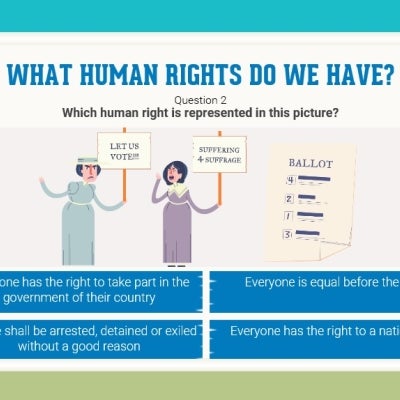Refine results
-
Technology and Human Rights19 July 2023Submission
Utilising ethical AI in the education system
Learn more about how ethical AI can be used in schools and education to promote learning and human rights. -
Legal14 December 2012Webpage
Federal Discrimination Law 2005: Chapter 3: The Racial Discrimination Act
Chapter 3: The Racial Discrimination Act 3.1 Introduction to the RDA 3.1.1 Background and Scope 3.1.2 Other Unlawful Acts and Offences 3.1.3 Interaction between RDA, State and other Commonwealth Laws 3.2 Racial Discrimination Defined 3.2.1 Grounds of Discrimination 3.2.2 Direct Discrimination under the RDA 3.2.3 Indirect Discrimination under the RDA 3.2.4 Interference with the Recognition -
14 December 2012Book page
Employment and Training: African Australians - Compendium (2010)
For migrant and refugee job seekers, finding paid work is both a key indicator and a major determinant of successful settlement. Employment is also a crucial area of social and economic participation. -
Childrens Rights21 November 2024News story
Proposed Social Media Ban for Under-16s in Australia
The Australian Government is proposing laws that will require technology companies to restrict individuals under the age of 16 years from accessing their social media platforms. -
14 December 2012Book page
Annual Report 2007-2008: Chapter 4 - Complaint Handling Section
Chapter 4 Complaint Handling Section Back to Contents 4.1 OVERVIEW OF THE WORK COMPLAINT HANDLING SECTION 4.1.1 Key performance indicators and standards 4.1.2 Customer satisfaction survey 4.1.3 Service Charter 4.1.4 Access to complaint services 4.1.5 Community education 4.1.6 Staff training and training as provider 4.1.7 Research and conference presentations 4.1.8 International conference -
Rights and Freedoms24 October 2018Teachers Article

An Introduction to Human Rights and Responsibilities
Explore the resource An Introduction to Human Rights and Responsibilities, which offers interactive lessons and resources for teaching Years 5-6 students about human rights. Designed for use with interactive whiteboards and other internet-enabled devices, the materials include lesson plans, homework activities, and are aligned with the Australian Curriculum for Humanities and Social Sciences. The…
